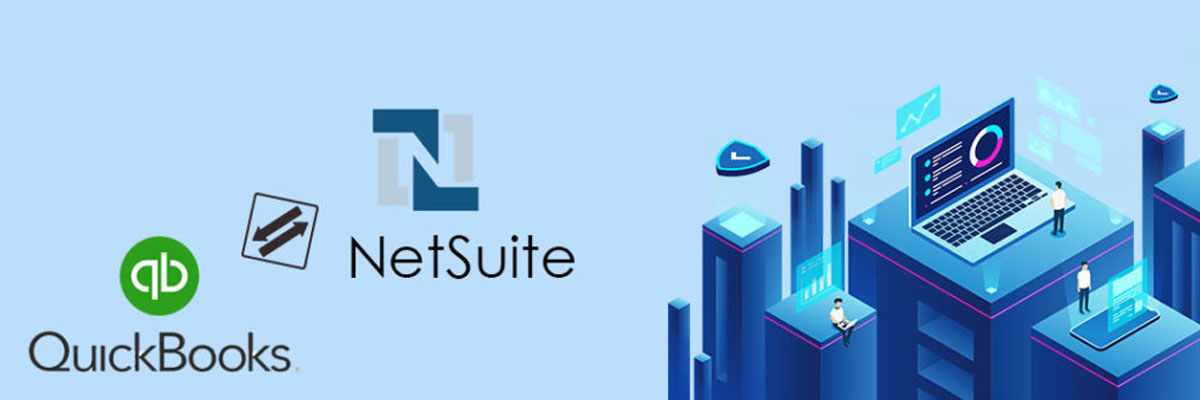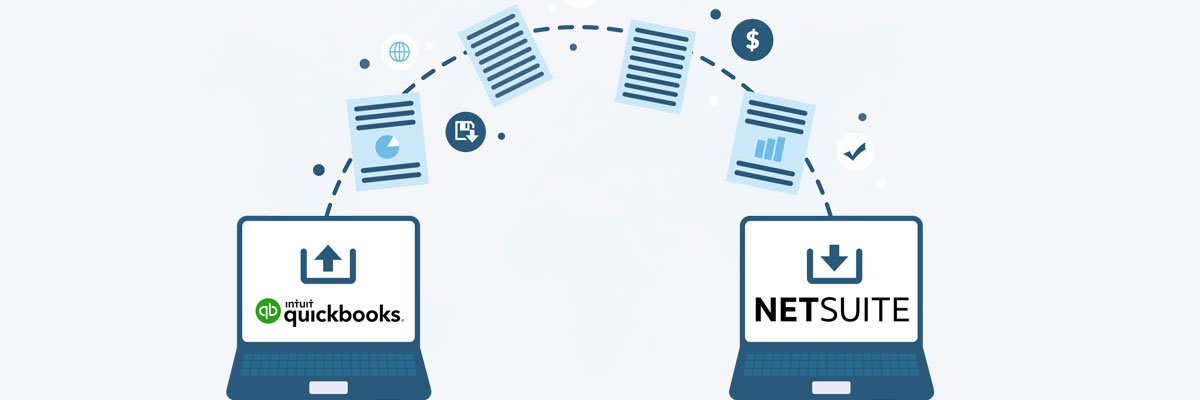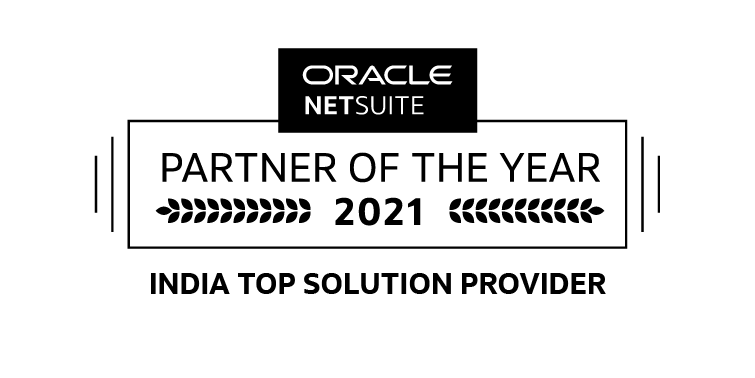Table of Contents
- 1 NetSuite Cloud Accounting Software
Summary: This write-up talks about NetSuite Accounting Software, its core benefits for the business, and why migration from QuickBooks to NetSuite for Accounting can be a diligent business move. Going through the article will help you comprehend the significance of a robust accounting software solution to gain a competitive lead.
NetSuite Cloud Accounting Software
NetSuite cloud accounting software is specifically engineered to simplify the process of recording transactions. Businesses often deploy NetSuite for Accounting to manage payables and receivables, collect taxes, and expedite the process of financial closure. Interestingly, such inventive capabilities enable timely, accurate reporting, and help business administrators get greater control of their financial assets.
Moreover, it comes with real-time access to financial data. This helps finance businesses quickly drill into details and solve mission-critical issues without a hitch. Also, they can generate statements and disclosures to comply with multiple regulatory financial compliance requirements as well.
Accounting All in One, Integrated Place
With NetSuite Accounting, you can gain real-time insights into numerous financial metrics. These may include profitability ratios, inventory margins, liabilities, fixed assets, taxes, and cash positions. One can ensure compliance with accounting standards, government regulations, tax codes, and internal policies.
Automation and Review
NetSuite Cloud Accounting Software automates repetitive tasks, such as journal entries creation or reconciliation of account statements, and elimination of the process of collecting and normalizing data from other departments. For the most part, it saves finance teams dozens of business hours every month and lets them make the best of these saved hours for reviewing transaction details, investigating anomalies, and analyzing trends.
Anywhere, Anytime Accessibility
As the data is stored in the cloud, hence, you can access it from a place where you can get an internet connection. Interestingly, the deployment of NetSuite Accounting enables your accounting team, executives, operational teams, and employees to work from anywhere, anytime.
Solution for Mission-critical Issues
With your company’s growth, you might face more complex business challenges. Here, leveraging NetSuite ERP can help you solve everything at once. As a unified and integrated platform, NetSuite accounting software seamlessly integrates with all the other pieces of the suite. These may include financial management, inventory and order management, human resource management, customer management, and e-commerce.

A Comparison Guide: QuickBooks vs. NetSuite
| Particulars | QuickBooks | NetSuite |
| Financial Management | Accounts Payable
Accounts Receivable General Ledger Multi-Currency Budgeting |
Accounts Payable
Accounts Receivable General Ledger Multi-currency/multi-tax,multi-language Fixed Assets Multi-Company & Consolidation Revenue Recognition Subscription Billing Forecasting & Budgeting Financial Planning & Analysis |
| Supply Chain Management | Order Management
Procurement Inventory Management |
Order Management
Production Management Inventory Management Procurement Warehouse Management Fulfillment Demand Planning WIP and Routing Work Orders and Assembly Management Shop Floor Control BOM Maintenance |
| Human Resource Management | Payroll |
Human Resources Management Payroll Employee Center |
| Professional Services Automation | NOT AVAILABLE | Project Management
Project Accounting Resource Management Time sheet Management Expense Management Analytics and Reporting |

Why Relying on QuickBooks Can Cost Your Business Errors and Delays?
Spreadsheets for Locking Business Data
With QuickBooks, employees spend unnecessary business hours each week on manual processes that range from creating invoices to filling out complicated spreadsheets. Many accountants using QuickBooks must create workarounds to make the system function and many use Excel spreadsheets to track deferred revenue, accrued expenses, and depreciation.
Dependency on Manual Processes
Manual data entry is time-consuming and leads to significantly more human errors. This ends up in delay in revenue recognition.
Moreover, QuickBooks’ spreadsheet dependence makes it even more difficult to find the most up-to-date data. Here, leveraging NetSuite gives you the perfect convergence point for different datasets. For the most part, NetSuite lets all employees use the same system, and update information in real-time.
Bad Data and Limited Reporting
In today’s evolving business landscape, making smart decisions quickly can either make or break businesses of all sizes. In such a case, error-prone data entry and disjointed systems make it nearly impossible to deliver comprehensive and valuable business insights. Above all, QuickBooks reporting is critically limited.
Concerns around Audit Pose
QuickBooks has audibility concerns and it prevents businesses from taking the next step in taking their operations or processes to the next level of success or innovation.
Inadequate Billing Processes affecting Forecasts
Services companies get manual processes of subscription billing and project accounting in QuickBooks. This way, subscription billing gets complicated, and manual dependency on sending bills every month makes it even more complex and tedious.
Delayed Extraction of Reporting
For the most part, QuickBooks was specifically orchestrated only to automate a handful of core accounting functions and not to manage your entire business. In case, you are experiencing any of these limitations or issues with managing accounts, you are putting your business at risk.
As QuickBooks is designed to serve small businesses, once you start servicing more customers, your business will need more robust systems.
Hence, switching from QuickBooks to NetSuite allows companies to increase operational efficiency, simplify core accounting processes, and boost overall organizational productivity. Eventually, it leads to long-term success and elevated business growth.

Why inoday?
At inoday, an official, globally accredited, and #1 ORACLE NetSuite Channel Partner, businesses of all sizes are connecting to NetSuite Consultants and have already taken a competitive lead with adaptive software solutions. We deploy a team of experts at NetSuite Consulting, NetSuite Development, and more to let businesses drive unmatched visibility into their core operations and help them thrive in the advancing landscape.
For the most part, many businesses have cherished robust accounting from the day they switched to NetSuite, and that too, under the aegis of experts and skilled NetSuite Professionals. If you want to have a similar upgrade or planning more to do with NetSuite Accounting, inoday is the place to get automation, innovation, development, and that too without a hassle!
FAQs
What is NetSuite in accounting?
NetSuite cloud accounting software helps simplify the process of recording transactions, managing payables and receivables, collecting taxes, and expediting the financial closure.
What is the accounting method of NetSuite?
By default, NetSuite offers extensive reports on an accrual basis to meet generally accepted accounting standards. It enables businesses to choose a cash basis for their report data.
Why do people switch from QuickBooks to NetSuite?
While QuickBooks delivers important reporting and data insights, it often lacks the real-time capabilities required to make key choices quickly. On the other hand, NetSuite’s powerful reporting and analytics features provide real-time access to financial data, inventory status, and sales performance.
For more details on switching from QuickBooks to NetSuite, write to us at info@inoday.com Or Schedule A Demo








